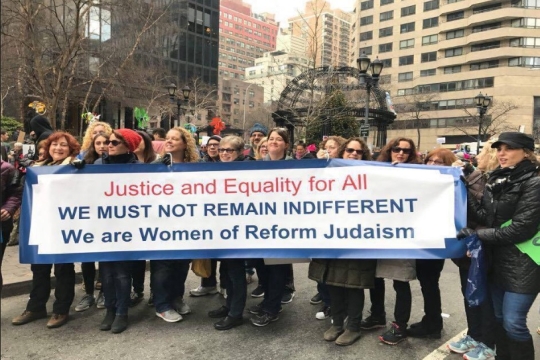
Trigger Warning: This article mentions sexual assault, rape, and incest.
I think we all can remember where we were the day that Roe V. Wade was overturned. I was at home. I was living in Tennessee then, a state with trigger laws. I was flooded with articles and headlines that shook me to my core. The more I read, the more my heart raced. I became sick to my stomach. I remember rumors and questions about what this could mean legally for practitioners, pregnant people, and anyone seeking birth control. I thought about the fact that I hope to bear children one day and felt a direct threat to my life. I felt scared and helpless.
Virtually, I listened to a lawyer explain the laws in Tennessee and what they meant for us. All I could think was, “I need to get out of here,” “what if one day I went to jail?” “What would this mean for my family?” My mind was racing with all the what-ifs. I remember going to my husband in a sea of tears, panicked, and urging us to move. Our lease was up in a few months, and we had already been considering what to do next. To me, this verdict was the deciding factor. While we hoped there might be a change in legislation, we hadn’t seen it, and I felt confident it wouldn’t come.
I thought about what lack of abortion access meant for everyone with a uterus. I feared for children who were survivors of sexual assault. I empathized with everyone forced to bring a baby to term, regardless of their desire. I considered extreme cases of people whose lives were at stake due to ectopic pregnancies. I thought about all the people who were essentially told they did not have autonomy over their bodies. And I worried about what this could mean for those considering fertility treatments.
My mind went to the physicians who could be charged with felonies and lose their licenses for performing abortions. I couldn’t, and still can’t, fathom the audacity to try and control another person’s body.
The hypocrisies were abundant:
- The irony of thinking minors are too young to choose their bodies yet are mature enough to be parents.
- The fact that people might not have access to birth control and are then expected to carry a baby to term if they have an unplanned pregnancy.
- The belief that overturning Roe v. Wade is about protecting life, but people who medically need birth control for conditions outside of protecting from pregnancy, have to bear the struggles because they aren’t getting care.
I remember the sickening debate about if there should be exceptions for rape or incest. The lack of compassion for other people was just appalling. Even if people try everything to protect themselves from pregnancy, unplanned pregnancies happen, and the responsibility falls solely on the pregnant person.
Parts of me thought I was being dramatic and misunderstanding the repercussions of the trigger laws. I wondered if everything in the media was exaggerated. I discovered my Jewish community was hosting a series about the impact of the overturn of Roe v. Wade. This series discussed abortion and Jewish law and had doctors and lawyers speak. With low expectations, I attended the session with the physicians to find hope but felt even more hopeless. I listened to the stories about pregnant people whose lives were at stake while doctors conferred with their legal teams. I learned what this meant for people seeking abortions from safe havens, which are limited in the surrounding states. I heard of the possible ramifications against people who go with their loved ones seeking abortions. I pictured people alone in a doctor’s office making a difficult decision to abort and the cruelty that they may not be able to have emotional support. I realized I wasn’t overreacting. My deepest fears were real.
This confirmed that I didn’t feel safe where I lived anymore. This launched our search for a new place to live, where I could freely decide about my body without breaking the law. I was shocked to learn that most states have limitations, and many fully criminalize abortion. Our options seemed limited. Ultimately, we settled in Nevada. While abortion isn’t entirely legal, many other factors led us here. We feel supported and safe being close to family and surrounding states with full access to abortion care.
I still check on the laws on abortion in Tennessee, which remain some of the strictest in the nation, and hope for change. In the meantime, I will continue to do the work to learn, educate, and be a champion for change. By no means am I ignoring or fulfilled by the existing limitations to access in my current residence. However, I am grateful to live in a place that values my choices about my body and health more. I am blessed to be a part of WRJ, an organization that supported my decision to move and understood the impact this could have on my physical and mental health. WRJ motivates me to persist in the face of threats and injustice to reproductive healthcare. Each day I am inspired by WRJ’s advocacy and work to defend the rights of all people.
Related Posts

A Privilege and A Sacred Duty

Let’s Be Welcoming and Inclusive


